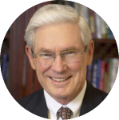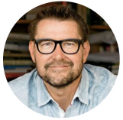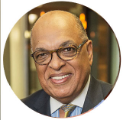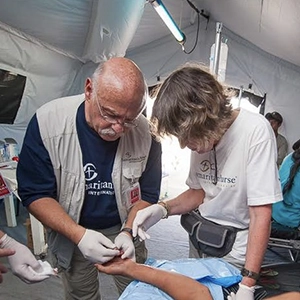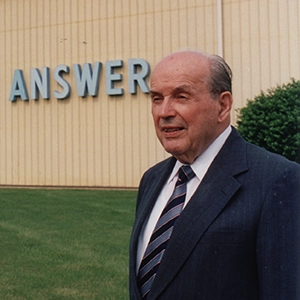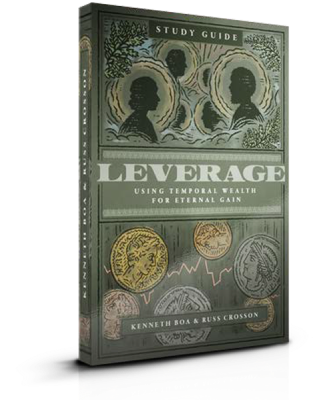Session 2
Why Are We to Give?
Session 2 Videos
Testimonies
Leverage Tips
Leverage Coaching with Reed Crosson
Plan with purpose. Proverbs 21:5a says, “The plans of the diligent lead surely to abundance.” Integrate purposeful giving into your financial strategy. Set aside a portion of your income for charitable donations, aligning your financial goals with your faith and demonstrating stewardship over the resources God has entrusted to you.
Read Stories of Generosity
Dr. David & Karan Gettle
David Gettle, M.D. went into medicine because, like many health professionals, he simply wanted to help people.
"A Simple Stick of Chewing Gum" Dr. David & Karan Gettle
David Gettle, M.D. went into medicine because, like many health professionals, he simply wanted to help people. He specialized in emergency medicine because he wanted to help others who were in critical, life-threatening circumstances. What he didn’t realize was how profoundly he would be changed by some of his experiences.
During David’s medical school training, he had the opportunity to work in a free clinic in inner-city Indianapolis. One day, after treating and releasing a young patient at the clinic, the child’s father came to him and gave him what he had to give . . . a stick of chewing gum. “I was just so humbled — here we are giving medical care to people who can’t afford to pay and could otherwise not receive care and this man offered me a stick of his gum. It was a huge act of generosity. I think about it to this day. He will never know how many people were impacted by his act of generosity to me.” A true, pay-it-forward moment began. And then disaster struck — literally.
David had always been attracted to the work of World Medical Mission, the medical arm of Samaritan’s Purse, which offered three-week volunteer trips throughout the world. But the organization wasn’t seeking emergency and trauma physicians, David’s specialty, until 1999, when he saw in their newsletter a specific request for professionals in emergency medicine. “I picked up the phone and called them. About six weeks later, I got off a plane in Macedonia and headed to the city of Gjakova, Kosovo, which had come under heavy bombing by NATO forces. True atrocities against humans were going on — the results were thousands of refugees and internally displaced people who had nothing. We went to what was left of the old town — it was still smoldering from an attack. Needless to say, I had never worked in a war zone. But now I had to get an emergency room up and running in one, despite the fact there was only very sporadic electricity and precious few supplies. We even had to use batteries to run monitors and other medical equipment. I saw injuries I’d never seen before, such as those from landmines. It was truly an eye-opening experience.”
After his return to the U.S., David made plans for a visit to Ethiopia on a six-month sabbatical from his position as vice president of medical affairs. That was when God began whispering to him that it might be time for a change from his current position. Very shortly after, he was working full-time for Samaritan’s Purse, a Christian international relief organization. “That was what God told me I needed to be doing — and I knew He was right,” says David.
David’s most challenging experiences were in Haiti and South Sudan. The relief teams were urgently called to Haiti due to a devastating earthquake and were met with enormous human casualties and a seriously damaged infrastructure. In South Sudan during their civil war, David recalls, “We could see the flash and hear the booms. They flew us out the next day. Those are the kinds of situations where we had to cover the people in prayer, because there was little more we could offer them than to show the love of God. In Kosovo, I learned you have to hit your knees before you hit the wall, because you cannot do this by yourself. I found out how truly dependent on God you have to be.”
In Bam, Iran, a stuffed teddy bear made the difference that medical care couldn’t after a 6.6 magnitude earthquake in December 2003, which killed more than 30,000 people. “So many people had nothing,” says David. “We were, of course, a Christian aid group working among a group of Muslims. One father took me to his daughter, who had a very serious spinal injury. There was little we could do other than get her name and location and turn the information into a central coordinating center, but we did give her a teddy bear. The girl’s mother and other women began crying, but not because we couldn’t help her. Her father told us, ‘It is because you gave her a teddy bear.’ We were able to show compassion, which meant a lot to them.”
During the past 10 years, David has, in his words, “been truly blessed to go to the largest international disasters,” both natural and man-made ones: the tsunami in Banda Aceh, Indonesia, the refugee crisis in civil war-torn South Sudan, the war in Iraq, an earthquake in Haiti, and most recently the earthquake in Ecuador. “When we go in, we start working immediately. We don’t go in to do an assessment, come back, and say ‘Here’s what needs to be done.’ We’re doing it — right then.”
Karan Gettle experienced God’s hand in a different way than her husband. Not allowed to accompany him on his numerous international medical trips because of the level of danger, and with absences of four to eight weeks, she stayed home — worried, of course, but “I always had peace beyond understanding. I never questioned that he was going where he was supposed to be. We never had a moment of hesitation that he should go. And, I’ve always had plenty of prayer
warriors who have been here for me. They pray for his safety, for the activities of the team, and for the people he’s serving. It’s a ‘front line’ of a different kind. We’re thrilled with how these decades of David’s work in crisis areas have changed us both. It has made us so dependent on the Lord.”
The Gettles note that you don’t have to fly halfway around the world to help others in need. The couple works with an inner-city organization in Indianapolis, gathering in a parking lot on Sunday afternoons distributing food and clothing to families, playing with kids or taking them trick-or-treating. “Whatever you can do to help people in crisis or transition — well, all I can say is you’ll receive blessings that you wouldn’t have imagined. I’m reminded of that every time I think of that stick of chewing gum from many years ago,” says David.
Stanley Tam
What happens when a businessman turns 100% of his company over to God?
"A Business Partnership with God" - Stanley Tam
Stanley Tam has lived a long and rich life giving, giving, and giving more. At age 100, it still gives him great pleasure to reflect on his “partnership” with God.
In 1936, Stanley began his path as an entrepreneur, starting a business to extract silver from photographic emulsions, but his success — or lack thereof — mirrored other companies who had tried before him. “I began praying about this business disappointment,” says Tam. “God spoke right to my heart and said, ‘Stanley, it doesn’t need to be a disappointment. You don’t need to go broke from your business. Turn it over to me and I’ll make it succeed.’ So I spoke back to Him, vowing that if I could succeed in business I would honor Him in every way I possibly could.”
Tam started over — with $33 to his name. He traveled through 30 states, struggling for three years to make money from his business. After meeting Juanita, the woman who would become his wife, his business took a sudden turn for the better. “Juanita was my good luck charm,” says Stanley. By 1940, Stanley was so happy with his business that he knew God had answered his prayers, and he decided to make good on his own promise.
“I went to a lawyer and told him I wanted him to draw up documents that would make God my senior partner in the business,” says Stanley. “He just looked at me and said, ‘What? You can’t do that.’ So I went to another attorney, who told me the same thing the first one did, but I told him I wasn’t going to leave until he did something about my request. He finally understood that I meant business. The attorney incorporated my business, issued stock, and set up a foundation so that I could give 51% of my company’s stock to the foundation and do His work through the foundation.” Stanley’s business once again began to grow, reaching $200,000 in annual revenue and then $800,000 several years later — amounts equivalent to $3 million and $10 million, respectively, today.
Then a new business opportunity crossed Stanley’s path. Some of his customers wanted plastic containers for storage; others wanted containers with a faucet, spigot, and tubing. Stanley researched it all and began selling what his customers wanted, eventually establishing a second company. That company, United States Plastic Corporation, an industrial distributor of more than 32,000 types of plastic products used throughout the U.S., now has annual revenue of about $55 million. Originally set up so that his foundation owned 51% of the business, Stanley eventually heard a message from God that said He wanted 100% of the business. It happened when Stanley and his wife were in Medellín, Colombia, speaking at a church.
“As I was speaking, something happened,” recalls Stanley. “The spirit of God came upon that meeting in a very precious way. God began to talk to me, saying, ‘Stanley, what’s the greatest value in all the world?’ As I looked at those souls in the meeting I knew the answer. The Bible says one soul is the greatest value in all the world. Then the Lord spoke to me again and said, ‘Stanley, if a soul is the greatest value in all the world, would you go back to the United States and turn your entire business over to me and use the profits to spread the Gospel around the world?’ I said, ‘Lord, you already have 51%. Isn’t that enough?’ Then He spoke to me once more: ‘Stanley, on the cross I paid it all for you. Now you’re my
disciple and I want you to do what I ask you to do. I want you to go back and turn your business over to me 100% and use the profits to spread the Gospel around the world.’ You’ll never know the struggle that went through me, but eventually I said, ‘All right, Lord, you can have it.’ It’s really all about obedience to God. Many people told me that what I was doing just didn’t make sense. But I felt like the Lord had showed me the way to be successful with my business and I wanted to be obedient to Him. It’s awfully hard to give up control of a company when you gave it birth. It’s almost like a child. But obedience comes first. That’s what I was challenged with — obedience to God.”
Since that decision, the foundation that owns 100% of U.S. Plastic Corporation has given about $130 million to the work of the Lord, supporting missions in third world countries.
Stanley was president of U.S. Plastic Corporation, headquartered in Lima, Ohio, for 53 years. His gift of being a smart businessman may be surpassed by his gift for evangelizing. For 83 years, U.S. Plastic has included a Gospel tract in every shipment of goods, which Stanley estimates has brought thousands of people to God. He has also spoken more than 7,000 times at churches in 30 countries around the world. His late wife, Juanita, used to say that she had seen the world through church pews.
Why has Stanley given so much? He says it’s quite simple — “You don’t take it with you. Money has meant less to me every year that I’ve lived. I just let the Lord lead me. When He asked me to do something, I said yes. It’s that simple.”
